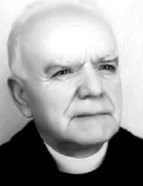

Since the 1930s, he focused on the poorest or most marginalised social groups. In this context, the focus on W. Beveridge's social security plan, implemented in 1942 and reported on shortly thereafter (1943), as well as the establishment of the School for the Social Training of Workers in Madrid (1947), is significant. This also reflects his political ideals, particularly as his writings (1944) align closely with his efforts in social welfare, housing (1956), morality, and religion. Certain groups merit special mention, including the fishermen of Newfoundland (1938), as well as the gypsies or the deaf-mutes (1939 and 1947). The Church's social doctrine, along with some of its documents (Rerum Novarum), served as his inspiration. On the other hand, he was actively involved in publicising meetings of Catholic professionals, including doctors and primary school teachers, while also advocating for the moralisation of business practices. His involvement in modern cultural movements (1946), in the University Days (1958), and the Grande Great cannot go unmentioned. Some of his thoughts on education can be found in articles addressing the secular school (1939), co-education (1940), and reports on a pedagogical journal (1962).
On the political spectrum, he was conservative, while socially he was a pioneer, consistently aligned with Church doctrine. Which is reflected on the significant work with the most disadvantaged, and on writings on the role of women in social life (B., 1946). Interestingly, there appears to be no reference in his writings to the contentious issues defined by the encyclical Humanæ Vitæ in 1968. The foundation of his innovative and open stance since the 1930s rests on the belief that education for all, including the poorest, is fair, necessary, and urgent.
Still in the political front, his stance after 25 April 1974 remains ambiguous. Assessing such matters takes time, and Domingos Maurício lacked that; in 1977, he suffered a stroke which, although he partially recovered from, combined with his advancing age, limited his public stances on issues. There are two bulletins bearing his name in the PIDE/DGS Archives (Torre do Tombo), but they are not pertinent to this biographical note. Among other scientific and cultural institutions, he was a member of the Portuguese Academy of History, where he was admitted as a Supernumerary Scholar in 1938. He served as a member of the Academic Council from 1954 until 1972, when he was elected Vice-President. He retained this position until 1975, when he was promoted to Merit Scholar. He was a member of the Associação dos Arqueólogos Portugueses [Association of Portuguese Archaeologists] (History section), serving as Vice-President and then President for many years.
This work is financed by national funds through FCT - Foundation for Science and Technology, I.P, in the scope of the projects UIDB/04311/2020 and UIDP/04311/2020.
